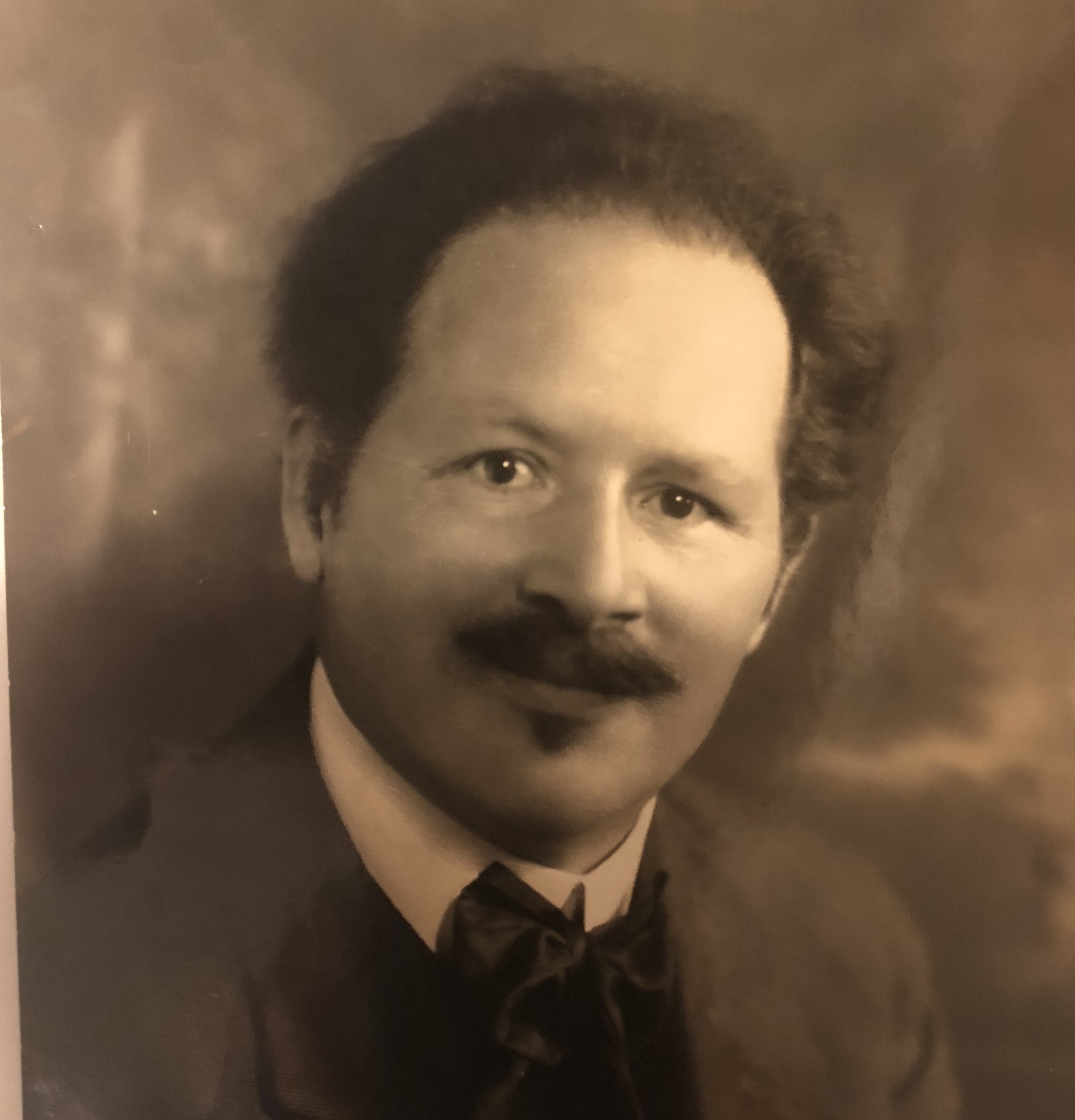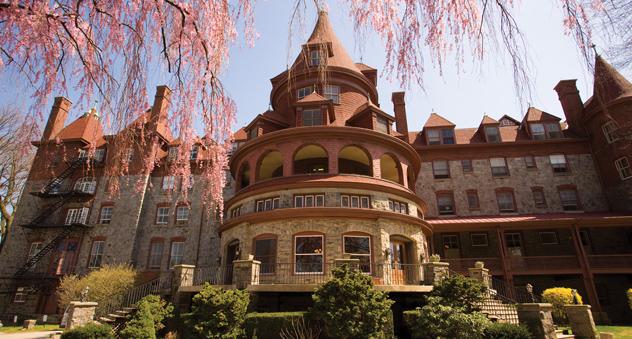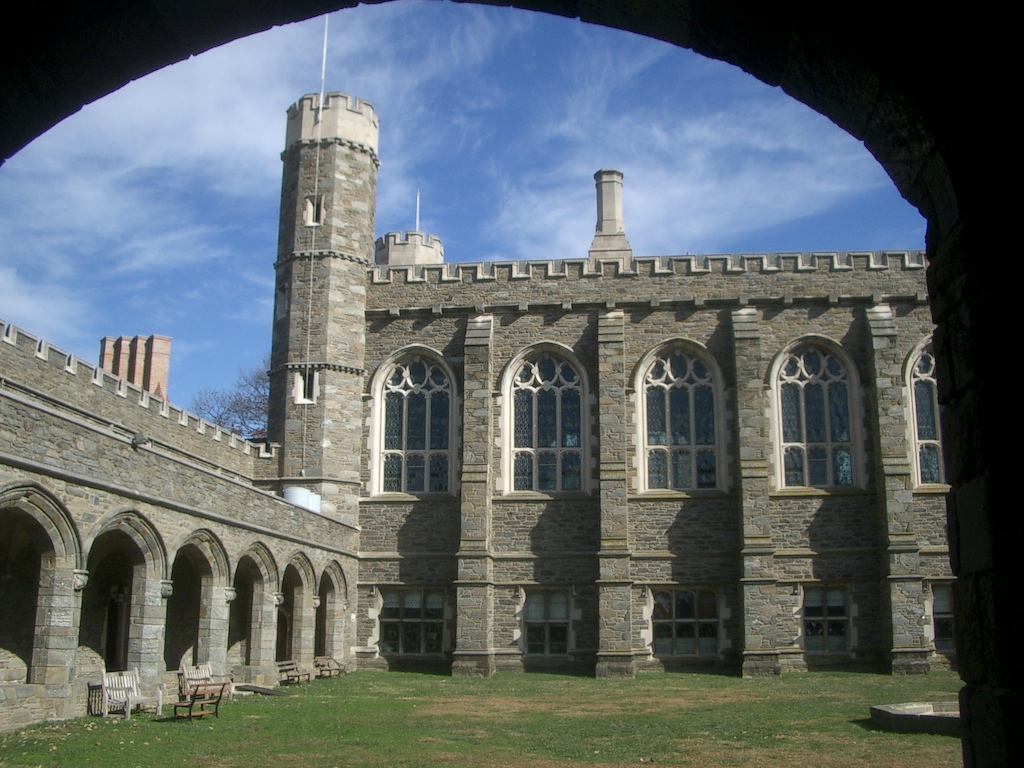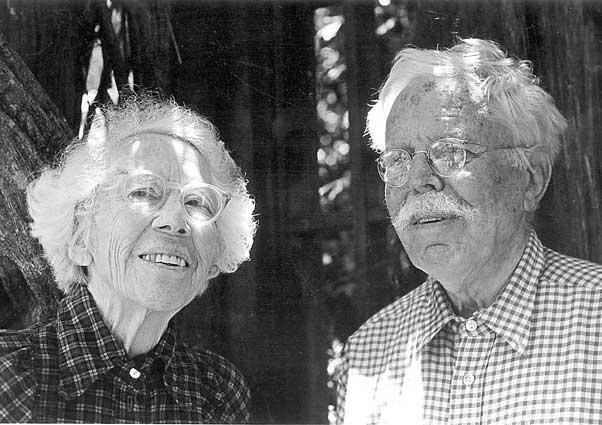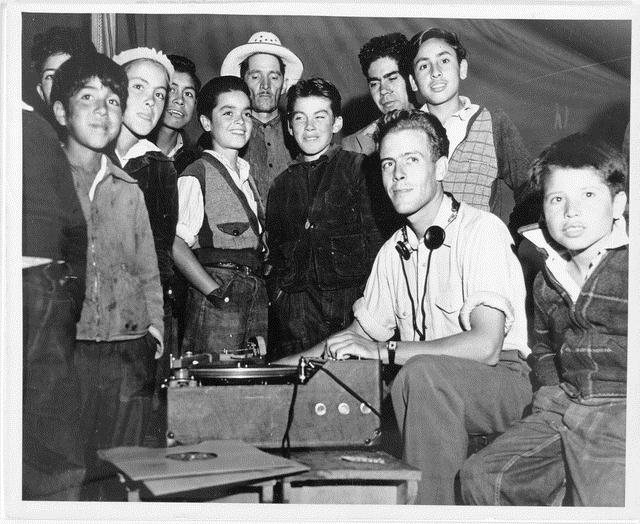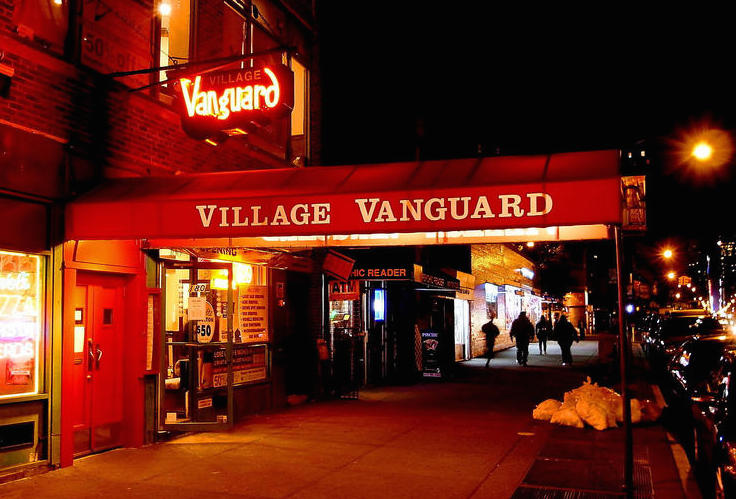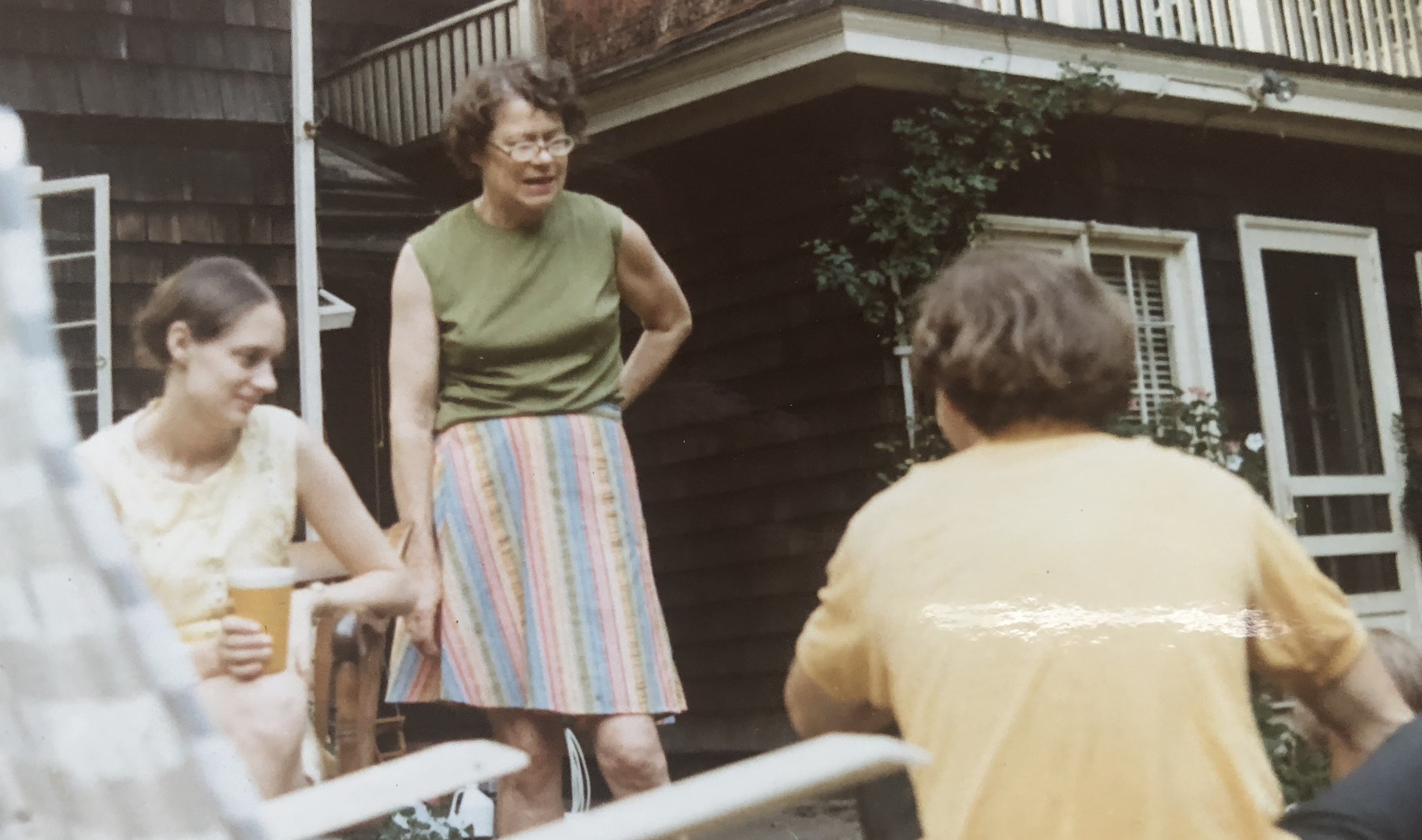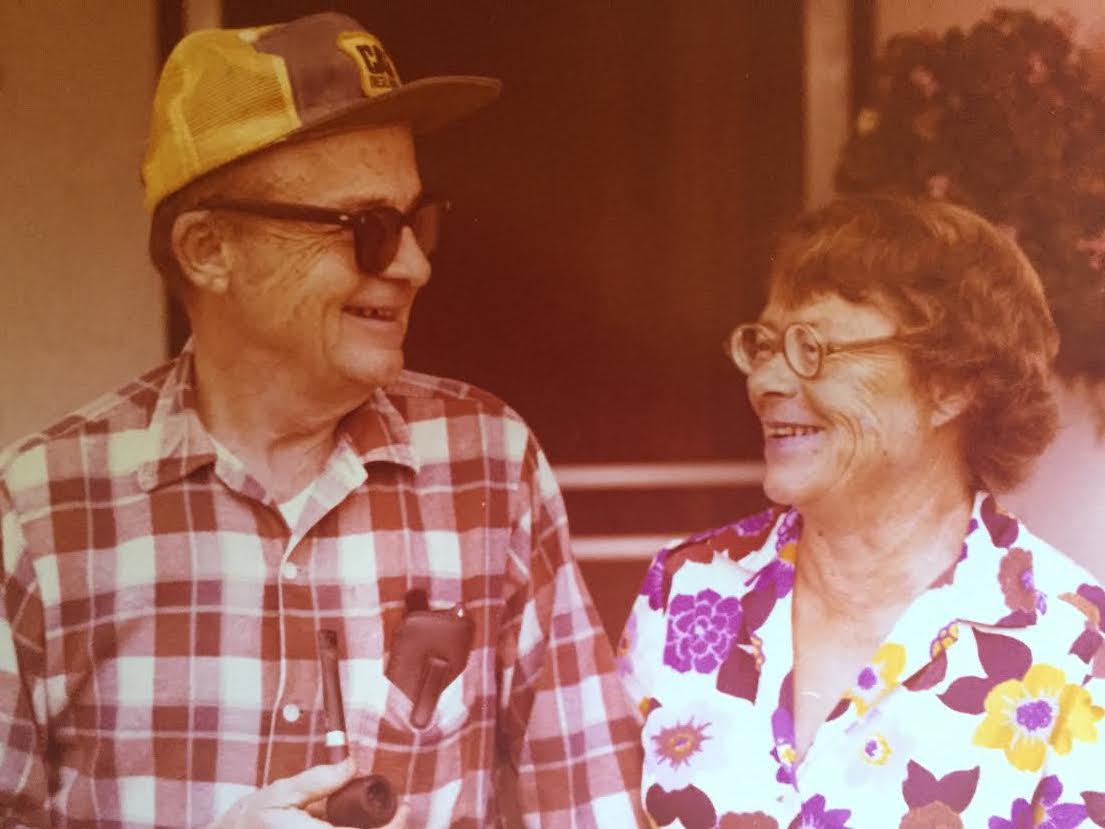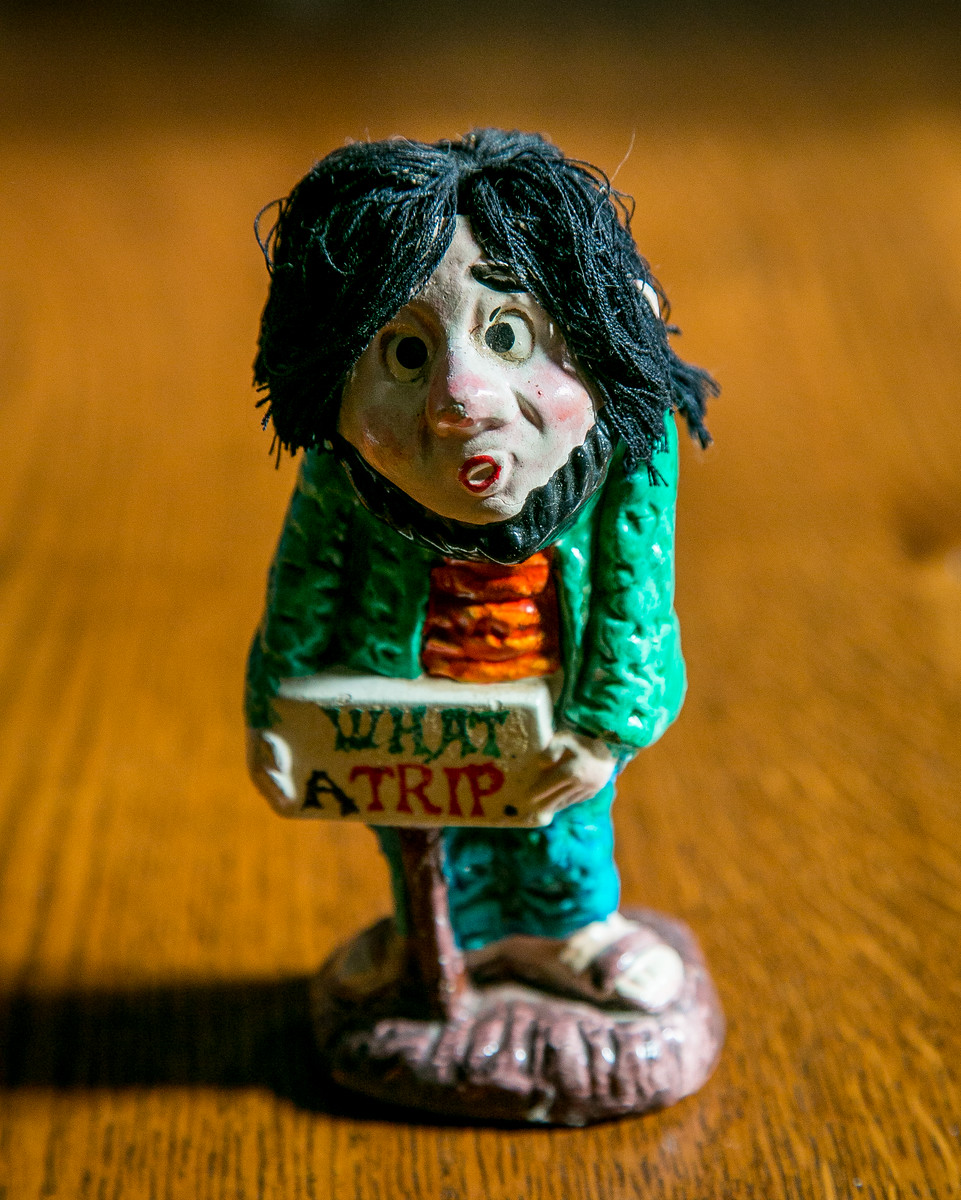My mother’s 100th birthday was last week. She was born on April 3, 1919, in Bryn Mawr, Pennsylvania.
Her father, Jean Baptiste Beck, was an Alsatian musicologist. After earning his doctorate at Strasbourg, narrowly avoiding a duel, leading an orchestra in a cafe-conert in Paris, and founding a Tournee classique performing classical drama in the outskirts of Paris, he came to teach at the University of Illinois at Urbana for three years, moved to Bryn Mawr where he taught first at Bryn Mawr College, and then the University of Pennsylvania. He lived much of his his life immersed in the music of the troubadours of the 12th and 13th centuries.
My mother’s mother was Louise Goebel, the daughter of Julius Goebel, professor of German at Stanford University, Harvard, and then the University of Illinois. Julius Goebel had seven children, one of whom was my grandmother. The children performed light opera for the family and friends. My grandmother was a scholar in her own right and for years she wrote the program notes for the Philadelphia Orchestra.
Which is to say that my mother grew up in a family of European scholars. Her childhood home was filled with visiting professors, musicians and painters, French and German and Dutch more common than English, arguments and debates, and a reverence for scholarship.
Her family owned a farm in Valley Forge, perhaps 15 miles west of Bryn Mawr.
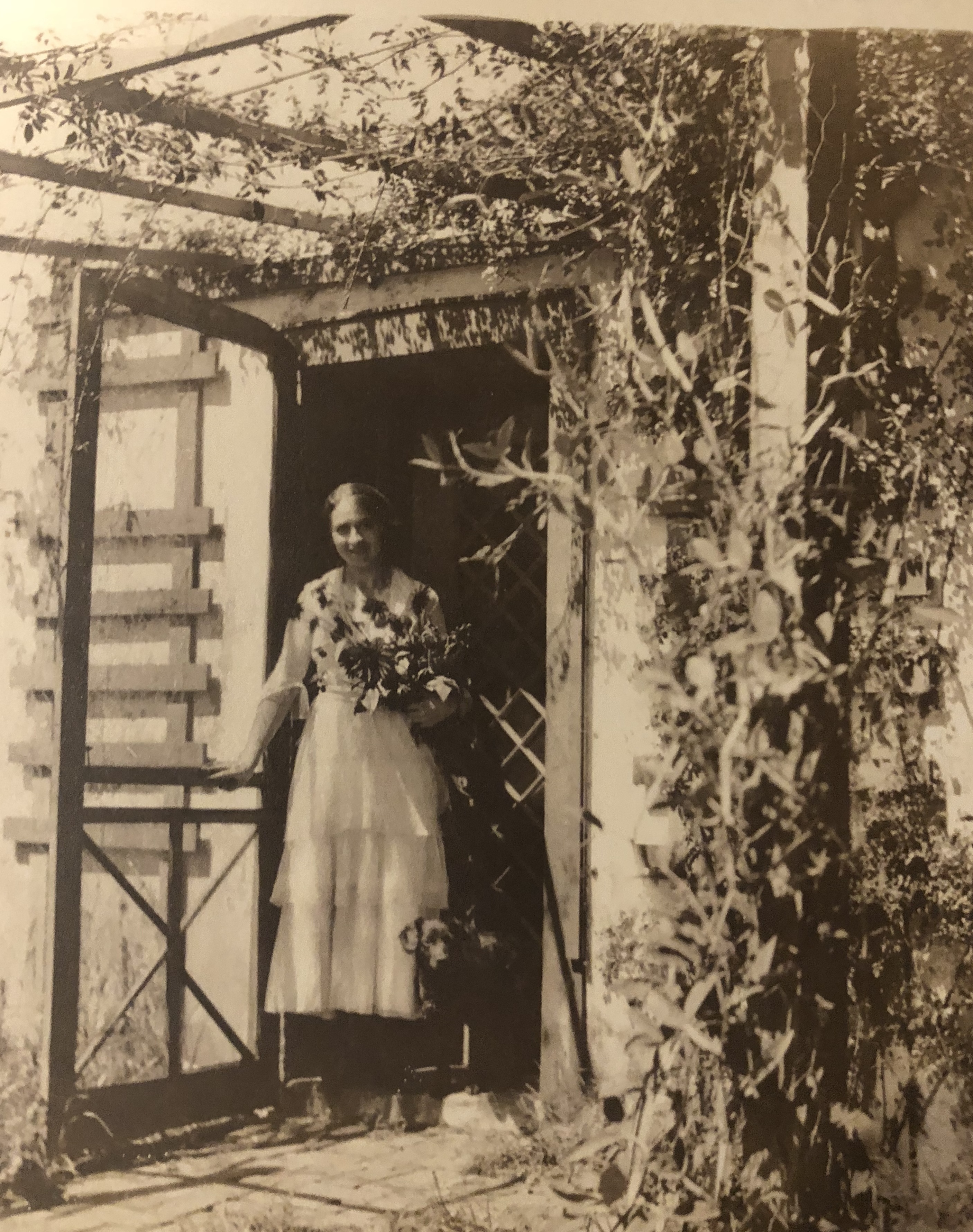 Summers were spent there – very rural, simple, and European. In this photo my grandmother, whom we called “Dami,” stands with a dog whose name I don’t know.
Summers were spent there – very rural, simple, and European. In this photo my grandmother, whom we called “Dami,” stands with a dog whose name I don’t know.
My mother went to the Baldwin School, a girls’ private school across the street from 125 Radnor Street where they lived. She was a brilliant student who graduated from high school two years early and was an all-Philadelphia field hockey and lacrosse goalie.
She majored in Philosophy at Bryn Mawr College. Talk about a tough major! She again graduated ahead of schedule with a near perfect academic record.
It was off to California then, to Mills College in Oakland, where she lived for two years earning a Masters Degree in Education.
In those years, the daughter of a college professor didn’t shlep back and forth across the country for vacations. She didn’t go home until she finished.
For one of the summers, she worked in a Farm Security Administration farm labor camp in Visalia.
She told me that she was playing “Red River Valley” on the harmonica when this photo was taken. That would be a fitting song in a farm labor camp filled with Dust Bowl refugees.
Her supervisor was a man named Fred Ross. In later years, Fred would go to work for Saul Alinsky’s Community Service Organization. Working with CSO, he identified, recruited, and trained Cesar Chavez as a community organizer. Fred stayed a close advisor to Cesar for the United Farm Workers years, and Fred’s son Fred Jr. became a superstar organizer himself. For the last ten years Fred and I have worked together for IBEW Local 1245. Sort of a butterfly effect – a minute localized change in a complex system can have large effects elsewhere.
For her other California summer my mother worked at Hidden Villa, founded in 1924 by Frank and Josephine Duveneck in the upper Adobe Creek watershed on the foothills of Black Mountain in Los Altos Hills, California, part of the Santa Cruz Mountains. The youth hostel on the farm was filled with refugees from Nazi Germany – bright scientists and artists. I have many photos from that summer. I will make a post. And – closing the loop – the Duvenecks were Quaker pacifists who were strong supporters of the United Farm Workers. Their ranch was a quiet and safe and reinvigorating place for Cesar to visit.
During her summer at the farm labor camp, my mother met Lafayette “Lafe” Todd. A few years earlier while doing graduate work at Columbia University, Todd lived in Greenwich Village and hung out at the Village Vanguard.
There he met Alan Lomax, Woody Guthrie, Huddie Ledbetter (better known as “Leadbelly”), Burl Ives, John Jacob Niles, and Frank M. Warner. Working with Robert Sonkin, Todd conducted ethnographic research and other documentation in the California FSA camps during their summer vacations in 1940 and 1941. BINGO Overlap! The daughter of a musicologist and an ethnographic researcher.
I would judge from photographs and stories that this was a romance. They saw each other back on the east coast. I know what didn’t happen – they didn’t get married – but I don’t know why not.
When my mother came back to Pennsylvania with her Masters Degree she started teaching kindergarten at the Episcopal Academy in Merion, Pennsylvania. It was an all- boys private school. You now shout IT’S ALL ABOUT YOU TOM and I blush and say, say, of course, I graduated from Episcopal in 1969 after ten years there. She taught a number of boys who went on to careers at Episcopal. My third and fourth grade teachers, one of the chaplains, the head of college admissionsl, and the assistant coach on the varsity soccer team were all her students.
She married a charming, erudite, educated, sophisticated officer in the British Navy named Hugh Worthing. That marriage ended very abruptly when his commanding officer told her simply that she would not contact or see him again, that he had gone back to England. He was, they told her, homosexual.
She married my father in 1948. They met at the funeral of the husband of the daughter of Eugene Ormandy of the Philadelphia Orchestra.
They lived on a small farm on Goshen Road in Newtown Square, Pennsylvania, in an 18th century little stone farmhouse. My mother stopped working. I was born in 1951, my sister in1953.
We lived in two different houses in Massachusetts for five years when my father worked for A.D. Little. One house was in Sudbury, the other in Lincoln.
In 1959 we moved back to Bryn Mawr as my parents’ mothers aged and needed attention.
This was Christmas in the mid 1960s.
We spent a few weeks every summer in South Bristol, Maine. Our little family was never happier than when there.
It was about a 500 mile drive from Pennsylvania. In this photo we had just gotten to South Bristol. In the background is our 1963 Ford Country Squire. I totaled it on the Schuylkill Expressway in July 1969. BAD TOM.
I graduated from Penn in December 1971 and moved to California to work for the UFW in August 1972.
This photo was a few days before I left. We are in the backyard of my grandmother’s house that had become our house. My cousin Jean is on the left.
My father had several strokes and couldn’t work. In 1975 they decided to move to Yuba City where my mother had a good friend, Marion Behr, from the summer in the farm labor camp. My mother and father gardened like nobody’s business.
I visited them in the summer of 1976. I was studying for the Bar and had grown what I think is known technically as “an ill-advised beard.”
My mother is 57 in this photo. My father had just turned 60.
This is the last photo of my parents, taken in the fall of 1976. He died on January 6, 1977.
 She stayed in Yuba City until 1994. Here my sister and some of her kids visited in about 1986. I don’t have a cheekful of chaw or anything else. It’s ust a weird photo.
She stayed in Yuba City until 1994. Here my sister and some of her kids visited in about 1986. I don’t have a cheekful of chaw or anything else. It’s ust a weird photo.
After my father died, she built a world as a widow – the gardening club, the bridge club, and the gourmet cooking club. She was very close to the family who owned the Seedllng Nursery. She volunteered at the nursery and was a surrogate aunt/grandmother. She moved to Maine in 1994. She never really created a life there. She died on February 28, 1998.
My mother was wicked smart. She an a few high school friends called themselves “the morons.”
She had high expectations for me. She drove me. She instilled these expectations in me for myself. If I had a test the next day, she would quiz me. Endlessly. She set the bar very high for parent involved in education of child. She was openly proud of what I did. When I headed off to California and the UFW and started to study law on my own you would think that I had won the Nobel Prize.
And yet – if there was one Bible verse that I heard the most growing up it was “Pride Goeth Before a Fall And A Haughty Spirit before Destruction.” Ironically, this was a misquote of the King James Version of the Bible, Book of Proverbs, 16:18, “Pride goeth before destruction, and a haughty spirit before a fall.” I like hers better, but you get the point. She found it necessary to cut me down to size from time to time. How’d that work out?
She was all about being self-sufficient. She cooked. She canned. She froze. We had a homemade dessert every night at dinner. She loved going to the Amish farmers’ market in Wayne and the Italian Market in South Philadelphia.
She built a doll house for my sister that still makes children happy 60 years later. She helped me make a troll house for my sister. She built a case for a dulcimer that she bought me. She rewired lamps. She was a seamstress, and a very accomplished. one She made a lot of our clothes. She made a lot of Barbie outfits for my sister’s dolls. She was for a number of years the big-cheese seamstress in the sewing clubs that supported the Christmas pageants at my school and church.
She was interested in my world. During my freshman year in college I joined The Resistance and went to their weekly potluck. She wanted to see what it was like and so came.
I worked for the UFW grape boycott in Philadelphia in the summer of 1970. My parents wanted to know the group. They invited everybody out to our house for a barbecue dinner. Picture this – a huge green backyard, huge trees, sloped down to a small stream. Humid, rich scents, evening. Exquisite and here comes this ridiculous combination of Mexican farm workers and more or less radical students plus a few religious who were a few weeks away from winning the grape boycott. It was a great evening.
I worked in the dining service at Penn and had close friendships with a number of the full-time workers. In May 1972 the Dining Service held an end-of-year picnic for its employees. I invited my parents. She was everyone’s best friend. And she played volleyball with the group and amazed.
She loved art projects. Perfect example – styrofoam Christmas balls. She was really good. She hollowed out eggs and made elaborate little dioramas in them for Christmas and Easter.
She was musical, very musical. She had perfect pitch and could sit down at the piano and play almost anything – folk, Broadway, classical – by ear. She embraced new music. She considered George Harrison’s “Isn’t it a Pity” to be a work of genius. Gordon Lightfoot’s “Sit Down Young Stranger” was ABOUT ME.
She encouraged my interest in music but didn’t suggest or insist on lessons. She wrote the numbers one through 8 on a C scale starting at Middle C. She explained that major chords were 1-3-5-8. For minors you flat the third. The dominant chords in the key of Care C, F and G. That’s about it. I figured it out and the numbered keys remained for my children
She loved cats and dogs.
She disliked and avoided confrontation.
She had routines. At night, after washing the dishes listening to a Broadway musical on the radio my father would make her a “nightcap.” Orange juice, sugar, canned kumquat from S. S. Pierce, and bourbon. She would sit up in bed reading mysteries from the library.
There was never ANY mess in the house. No lack of organization. AT ALL.
She liked to make lists. Seriously serious lists of what had to be done. Everything was planned. I remember very little spontaneity and that’s not a criticism, just a fact.
She loved the Paradis Bakery in San Juan Bautista.
She took the long view on most things. Calm down, don’t stress out. It’s going to be okay. I remember her sitting polishing silver for hours with Sepha Thornton. Sepha cleaned our house on Fridays. As a young woman Sepha had worked as a baby-sitter taking care of my mother and aunt.
She had no time At All for social pretenses, and goodness knows there were a lot in Philadelphia. The Social Register? No thanks. The Merion Cricket Club? No thanks. The Philadelphia Country Club? No thanks.
She loved loved loved going to the Flower Show in Philadelphia each winter with my father. I smile to think of that.
She was a hard worker, the hardest worker I ever knew. In 1984 she was 65 and I was 33. She came to help me paint and clean the house on Oxford Street. She worked me into the ground.
She wasn’t one to remind you of your failures. In December 1972 I drove a friend’s car from California to Bryn Mawr for Christmas. She suggested that i be sure that it had anti-freeze in it. I shined her on. Got to Bryn Mawr with no anti-freeze. Left car outside overnight. Engine block cracked. No lecture No sermon. No speech.
She didn’t make jokes or crack wise. She laughed at others, but wasn’t the one making others laugh.
Her grandchildren called her “Noni” except for my son Jake. He called her “Dalzell.” That is what my grandmother called my father. Small world!
So happy 100, mother. I called her “Mommy” until about 7th grade. Then “mater,” Then “mere.” Then “Mums.” Then “mother.” I still have the Dutch iris that you brought from the garden of the Mills professor that you loved so much 75 years ago. You are remembered, missed, and loved by your son.



